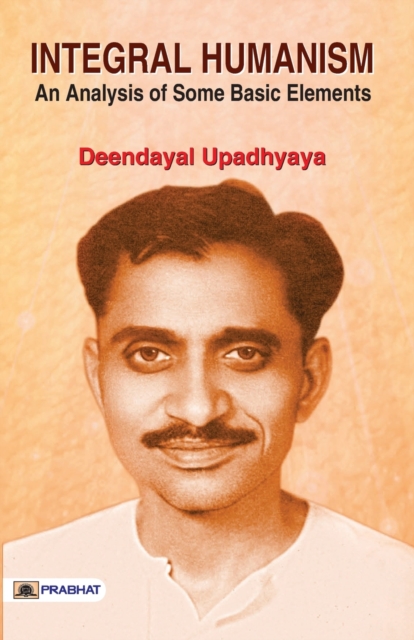
Integral Humanism: an Analysis of Some Basic Elements Book
by Deendayal Upadhyaya
Book
Description
Though, childhood of Pandit Deendayal Upadhyaya was spent in dire circumstances, yet he was masked as a talented student when Indian struggle for independence was engulfed by two nation theory. 1942 he started his public life via Rashtriya Swayam Sewaksangh. He was an astute organiser, man of letters, a journalist and an orator. He supplemented his work of R.S.S. through his skills. He joined politics when Bharatiya Jana Sangh was established as a political party under the presidentship of Dr. Syama Prasad Mookerjee. He started Kashmir movement, independence of Goa movement and movement against transferring of Berubari and thus kept these issues alive in Indian politics to strengthen unity and integrity of India. He devoted whole of his life for the integration of India. India needed a strong opposition party and Bharatiya Jana Sangh emerged as a powerful opposition. He made extensive preparation for making this opposition party as an alternative to the ruling party. An alternative was needed not only of the old system but of the old ideologies too. He gave a call for 'Integral Humanism', 'Cultural Nationalism' and 'Indenisation'. He remained General Secretary of Bharatiya Jana Sangh from 1951 to 1967 and was made president of the party in 1968, shortly before his gruesome murder. The political party he nurtured became the political alternative in the form of Bharatiya Janata Party.
Information
-
Out of stock
- Format:Book
- Pages:144 pages
- Publisher:Prabhat Prakashan
- Publication Date:12/08/2016
- Category:
- ISBN:9789386231758
Information
-
Out of stock
- Format:Book
- Pages:144 pages
- Publisher:Prabhat Prakashan
- Publication Date:12/08/2016
- Category:
- ISBN:9789386231758






